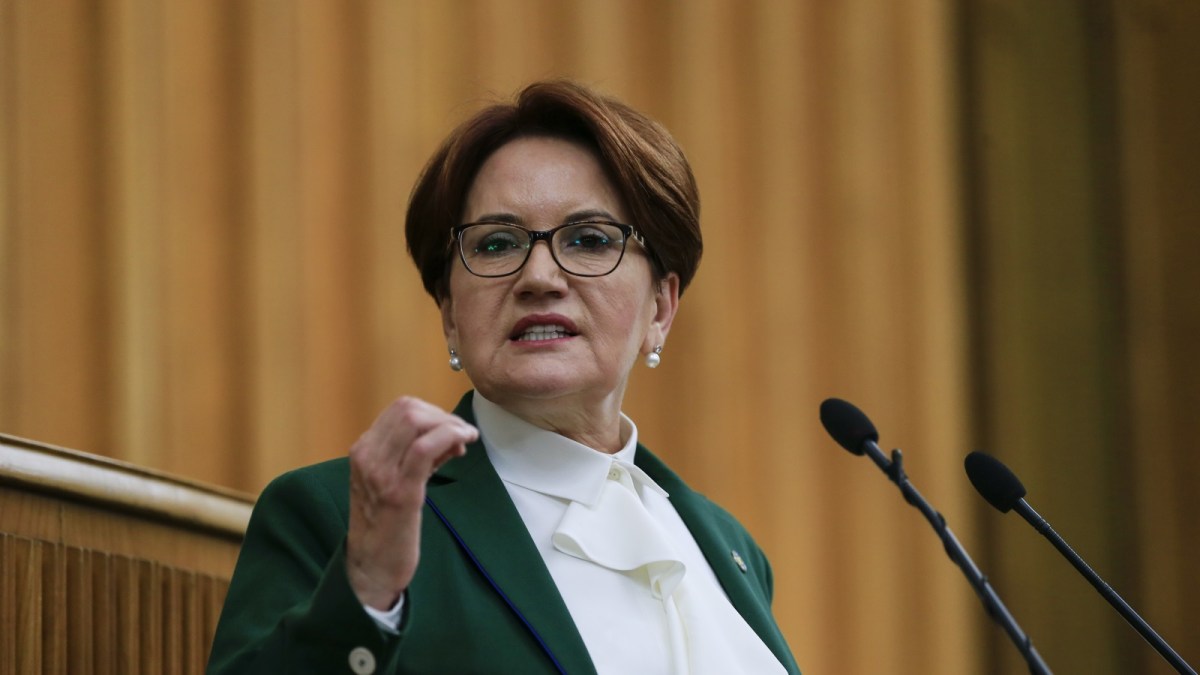The Turkish "Good" party announced today, Friday, its withdrawal from the main opposition coalition, stressing its rejection of the proposal to push the leader of the Republican People's Party to be a joint opposition candidate in the upcoming presidential elections against the current President Recep Tayyip Erdogan.
Party leader Meral Aksener said that the other five parties in the coalition agreed to push the leader of the Republican People's Party, Kamal Kilicdaroglu, to be its candidate for the presidency, and therefore the six-party table, consisting of six opposition parties, no longer represents the will of the people.
Meral Aksener stressed that Kilicdaroglu's choice resulted from "small calculations" that conflict with Turkey's public interest, she said.
She made it clear that her party - the second largest in the coalition - would not "bow" to pressure to agree to it.
On the other hand, I suggested nominating the mayor of Istanbul or the mayor of Ankara, both of whom are from the Republican People's Party.
She said polls show they will win by a large margin against Erdogan.
She criticized Aksener Oglu sharply, and said that he "does not want to see a candidate other than himself, so we call on the mayors of Ankara and Istanbul to respond to the people's call, to take responsibility and one of them to nominate his name as a candidate for the upcoming elections."
beautiful gift
Analyst Anthony Skinner said, "Akşener's refusal (candidacy) Kilicdaroglu constitutes a serious blow to the aspirations of the opposition," and gives Erdogan a "beautiful gift."
Kilicdaroglu held a high-ranking position previously, and he is from the Alevi minority, at the age of 74, and part of the opposition supporters believe that he lacks “charisma” in the face of the country’s president, who appears in the image of the strong man.
The opposition still has 10 weeks to market its candidate and campaign.
Turkish media reported that the Republican People's Party had called an extraordinary meeting of its Central Executive Council in the wake of Akşener's remarks.
A divided opposition would weaken the challenge President Recep Tayyip Erdogan faces in the upcoming elections.
And the German news agency reported that the selection of Kilicdaroglu as a candidate to confront Erdogan in the elections led to a split in the ranks of the opposition coalition, which consists of 6 parties.
Erdogan announced this week that the elections will be held on May 14, adhering to his previous plan to organize the polls on time, regardless of the criticism leveled at his government's handling of the earthquake disaster.
For his part, Kilicdaroglu played down the dispute over the presidential candidate, and said, "Don't worry, things will be fine."
The opposition has previously failed to pose a real challenge to Erdogan, who has been in power for two decades.
Erdogan is in the balance
According to Reuters news agency, Erdogan's popularity has plummeted amid a cost-of-living crisis even before last month's earthquake that killed 45,000 in Turkey.
Despite widespread criticism of the government's response to the disaster, opinion polls on Friday showed that Erdogan and his party still appeared to maintain a broad support base among voters.
In the province of Adiyaman (southeastern Turkey) - the stronghold of the Justice and Development Party, which suffered some of the heaviest damage caused by the earthquake - some said that their support for the government declined due to its handling of the disaster, but they have not yet decided their position towards the opposition.
"There are many who want to vote for the opposition, but there are no candidates yet. I will not vote for Kilicdaroglu. He did not win any elections," said a man named Mahmoud in the town of Bisne - which was badly affected by the quake.

